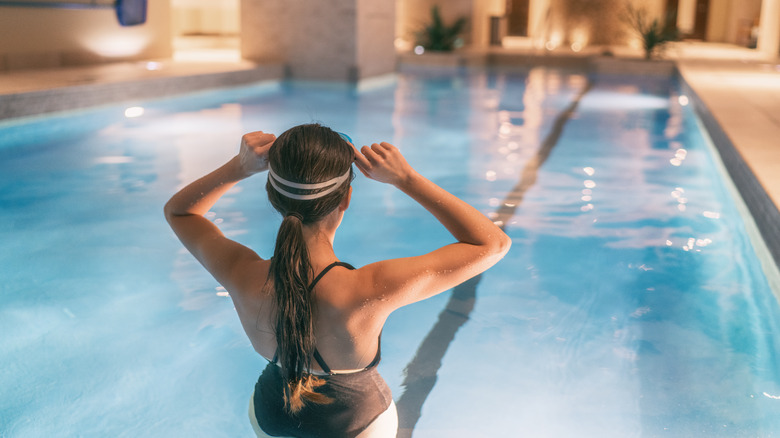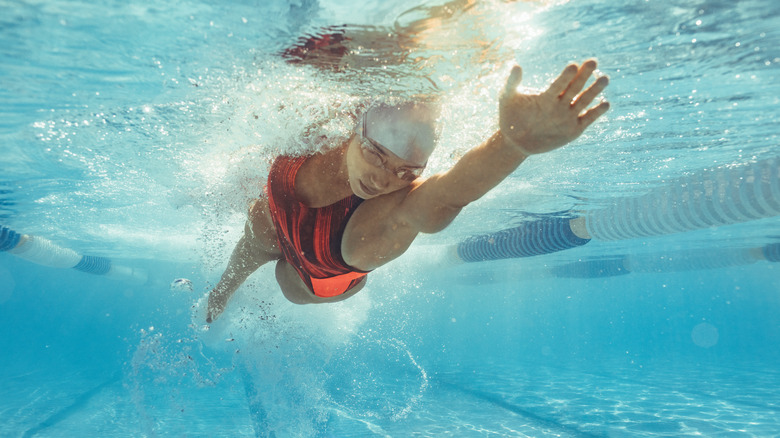When You Swim After Eating, This Is What Happens To You
As it turns out, eating right before swimming won't hurt you, unlike what your mother or father may have told you growing up. This rumor — probably started by parents who just wanted to relax after lunch before running to the pool—simply doesn't check out. However, for optimal performance in the water, the timing of your pre-swim meal does matter, as well as what you're eating.
The old myth that cautions against eating before swimming stems from the idea that blood gets diverted to the gut after eating to aid with digestion, which can lead to fatigue due to less blood flow in the arms and legs. While yes, blood will be used to help boost digestion, the amount it takes from the arms and legs isn't going to cause deadly levels of fatigue (via Duke Health). At most, you may just end up experiencing that familiar tired feeling that naturally occurs after a big meal, but a swim could actually be just the thing to wake you up.
What should you eat pre-swim?
If you're swimming for performance — you're in a swim club or you're in training for a triathlon — you'll want to time your pre-swim meal two to four hours before hitting the pool, and any small snacks to be eaten within 30 minutes before hopping in the water (via BBC Good Food). Similar to what you would typically eat before going out for a run, think about foods that you digest easily, rather than trying something new. Prioritize easy to digest carbohydrates, small amounts of protein, and skip foods that are high in fat or fiber that could leave you feeling sluggish in the pool.
If you do eat right before swimming, there is one caveat: It probably won't be too comfortable, especially if you eat something that doesn't agree with you, or if you eat a particularly large meal. "You may end up with some stomach cramping or a muscle cramp, but this is not a dangerous activity to routinely enjoy," says Dr. Michael Boniface, an emergency medicine physician at the Mayo Clinic.


